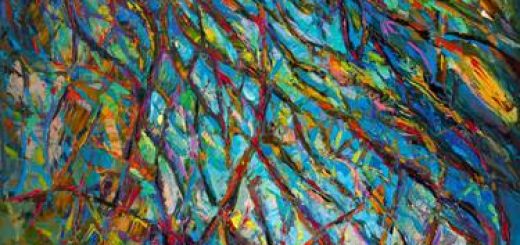Shade

 My son asked me a million dollar question recently, “Mom, can I trust these people?” I’m so sorry honey, but you cannot trust anyone purely based on an affiliation they have with a group. A “homeschool family” tortures their children. A long-term Pastor sexually assaulted a teen, and begged her not to tell. A church board did not report the assault to the police. An Olympic coach with more than 150 counts of sexual assault. A lawyer who stole from his boss. A policeman who shot an innocent. Every day there is a new story. A few generations back, it was the opposite. Tattoos, piercings, men with long hair, women wearing pants, supposedly spoke to an individual’s character. We were wrong then and we are wrong now. Believing someone is not capable of injustice based on a community they participate in is the height of naivety. Why is it so hard to learn? You cannot judge a book by its cover any more than you can judge a human based on collective associations. There are perpetrators of injustice across the political spectrum. Across tax-brackets. Across vocations. Across belief systems. And the systems. You can’t trust the systems either. “Christianity (for example) has far too easily called individual, private behaviors sins while usually ignoring or even supporting structural and systemic evils. All of the seven capital sins were admired at the corporate level and shamed at the individual level. This left us utterly split in our morality, dealing with symptoms instead of causes, shaming people while glorifying systems that were themselves selfish, greedy, lustful, ambitious, lazy, prideful, and deceitful. We can’t have it both ways. Evil lurks powerfully in (our own) shadows, (and) in our unconscious complicity with systems that serve us at others’ expense.” Richard Rohr
My son asked me a million dollar question recently, “Mom, can I trust these people?” I’m so sorry honey, but you cannot trust anyone purely based on an affiliation they have with a group. A “homeschool family” tortures their children. A long-term Pastor sexually assaulted a teen, and begged her not to tell. A church board did not report the assault to the police. An Olympic coach with more than 150 counts of sexual assault. A lawyer who stole from his boss. A policeman who shot an innocent. Every day there is a new story. A few generations back, it was the opposite. Tattoos, piercings, men with long hair, women wearing pants, supposedly spoke to an individual’s character. We were wrong then and we are wrong now. Believing someone is not capable of injustice based on a community they participate in is the height of naivety. Why is it so hard to learn? You cannot judge a book by its cover any more than you can judge a human based on collective associations. There are perpetrators of injustice across the political spectrum. Across tax-brackets. Across vocations. Across belief systems. And the systems. You can’t trust the systems either. “Christianity (for example) has far too easily called individual, private behaviors sins while usually ignoring or even supporting structural and systemic evils. All of the seven capital sins were admired at the corporate level and shamed at the individual level. This left us utterly split in our morality, dealing with symptoms instead of causes, shaming people while glorifying systems that were themselves selfish, greedy, lustful, ambitious, lazy, prideful, and deceitful. We can’t have it both ways. Evil lurks powerfully in (our own) shadows, (and) in our unconscious complicity with systems that serve us at others’ expense.” Richard Rohr
Psalm 23 famously puts it this way, “Even though I walk through the shadow of death…” This isn’t just a walk between life and death, but a walk through our own and each other’s “shadows.” I think as a part of human nature, familiarity engenders trust. We need connection and community. We are drawn to familiars, where we feel a little bit at home. In the words of Aleksandr Solzhenitsyn, “If only it were all so simple! If only there were evil people somewhere insidiously committing evil deeds, and it were necessary only to separate them from the rest of us and destroy them. But the line dividing good and evil cuts through the heart of every human being. And who is willing to destroy a piece of his own heart?” (The Gulag Archipelago) Did you know the Bible says that humans need practice to distinguish between good and evil? Just like in those generations past, we think we will recognize it when we see it. Yet some will try to “be good,” and not even recognize the slippery slope of internal justifications. Like those who cover up systemic evil, most likely they convinced themselves it was for the “good of the group.” The worst of us think we aren’t capable of evil deeds, so we don’t look inside at our motivations, desires or resentments to discover our shade. When we don’t, our internal corruptions will bear out in our institutions, starting with our families. I side with Aleksandr, and believe we all have capacities for evil, by no means am I saying that everyone has the same particular capacities.
Ah, so what to tell my son? The things we need the most; love, connection, and support, cannot be obtained, or given for that matter, without wading into the waters of community. As much as we cannot trust anyone based on an association, distrusting an individual based on one is equally detrimental to the hope for healthy relationships. Have courage, and also “be wise as a serpent and yet as harmless as a dove.” Jesus




This is both wise, poignant, and well-written. GOOD stuff, Jill. Thanks for it. Keep on! : )